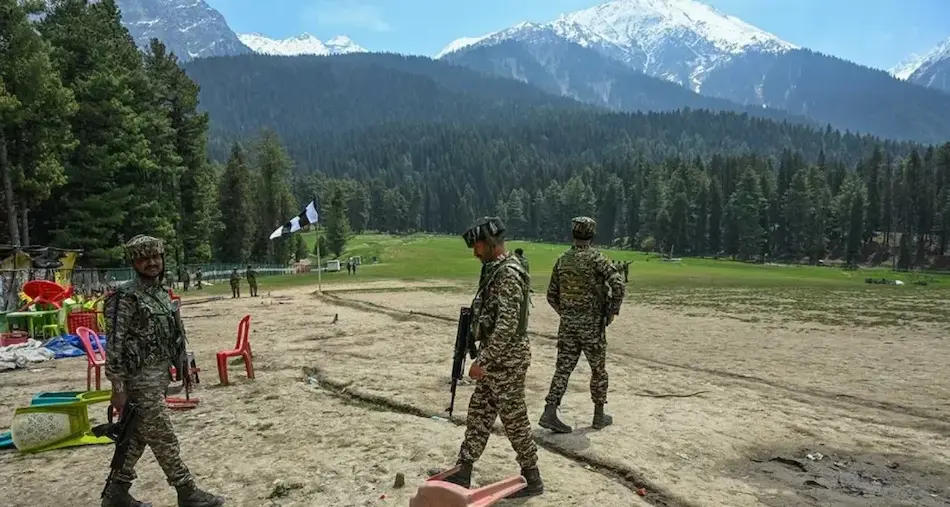
NIA has arrested two Pahalgam residents for harbouring Pakistani Lashkar-e-Taiba terrorists behind the April 22 massacre that killed 26 civilians
The Arrests That Shook Pahalgam
Pahalgam Carnage – In a decisive move that has reignited national outrage and international scrutiny, the National Investigation Agency (NIA) arrested two residents of Pahalgam – Parvaiz Ahmad Jothar and Bashir Ahmad Jothar for allegedly harbouring the Lashkar-e-Taiba (LeT) terrorists responsible for the April 22 massacre in Jammu and Kashmir’s Baisaran Valley.
According to the NIA, the two men knowingly provided food, shelter, and logistical support to three heavily armed Pakistani nationals affiliated with the proscribed terror outfit LeT. These terrorists, investigators revealed, carried out a brutal, religiously targeted attack that claimed the lives of 26 civilians, 25 of them tourists and left 16 others grievously injured.
The attackers reportedly stayed in a seasonal hut (dhok) in Hill Park, Pahalgam, just days before the carnage. The NIA has booked the accused under Section 19 of the Unlawful Activities (Prevention) Act, 1967, and further investigations are underway to uncover the full extent of the terror network operating in the region.
A Chilling Act of Religious Targeting
The April 22 attack was not just another act of terror, it was a calculated massacre. Survivors recounted how the gunmen asked tourists about their religion before executing them at point-blank range. The attack took place in Baisaran Valley, often dubbed “Mini Switzerland” for its scenic beauty, turning a peaceful tourist haven into a blood-soaked nightmare.
This deliberate targeting based on religious identity has been widely condemned as one of the most gruesome terror attacks in recent memory. The Financial Action Task Force (FATF) also weighed in, stating that such attacks are impossible without financial networks that enable the movement of funds between terrorist supporters.
The brutality of the attack and the subsequent arrests have reignited debates around the role of local facilitators in cross-border terrorism and the urgent need for community vigilance in conflict-prone regions.
Operation Sindoor: India’s Swift Retaliation
India’s response to the Pahalgam massacre was swift and strategic. On May 7, the Indian Armed Forces launched Operation Sindoor, a series of precision airstrikes targeting terror infrastructure in Pakistan and Pakistan-occupied Kashmir (PoK). According to official sources, nine terror launchpads were destroyed and over 100 militants were neutralized.
The operation escalated into a three-day military confrontation, with Pakistan retaliating through ceasefire violations and drone incursions. However, the Indian military’s firm response, including strikes on key Pakistani military installations, forced Islamabad to request a ceasefire on May 10.
India has since issued a stern warning: any future misadventure will be met with an even more decisive response. The message is clear, terrorism, especially when aided by local collaborators, will not go unanswered.
Conclusion – Pahalgam Carnage
The arrests of Parvaiz and Bashir Jothar mark a significant breakthrough in the Pahalgam terror probe. But they also serve as a grim reminder of the persistent threat posed by cross-border terrorism and the role of local enablers. As the investigation deepens, the nation watches closely, demanding justice for the innocent lives lost and a future free from the shadow of terror.
Stay updated with the latest news on Rapido Updates. Keep yourself updated with The World, India News, Entertainment, Market, Gadgets, Sports, and many more
Also read – 3 Terrorists Including Asif Sheikh Killed in Pulwama Encounter Linked to Pahalgam Attack
1 thought on “Pahalgam Carnage: NIA Nabs Two Locals for Aiding Pakistani LeT Terrorists in Chilling Massacre”